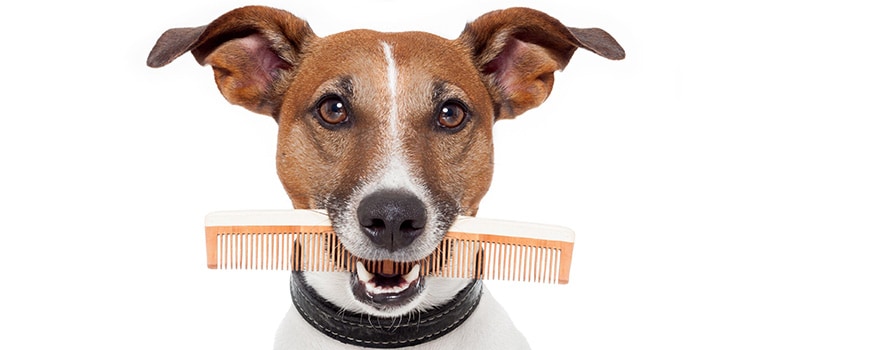Your Schnauzer may need weekly flea baths throughout the flea season, late summer and early fall. Fortunately, today you can administer a monthly pill to prevent fleas from reproducing or apply one of the topical treatments that work through the coat oils, providing protection for as long as three months. A high quality flea collar will also prevent them from hopping back on board.
And hop they do: It’s estimated that a flea
can jump 350 times its body length, comparable to a human jumping the length of a football field! If you see fleas or their telltale debris,
which looks like black pepper, a flea bath is in order. Fleas do more than cause itching and skin damage. They also carry tapeworms, which can debilitate your dog’s health by interfering with his ability to gain nourishment from his food.
Many groomers are steering clear from the harsh chemical dips of the past. For the pet’s safety and our own, we now use
shampoos with more natural flea killers such as pyrethrin, derived from chrysanthemum plants. Other natural flea-killers are neem, melaleuca (Australian tea tree oil), d-limonene a (byproduct of citrus peel) and pennyroyal, another botanical substance (not recommended for nursing female dogs or puppies less than 12 weeks).
Such products get a synergistic boost from permethrin, a synthetic pyrethrin that delivers a longer-lasting, flea-killing effect. To eliminate fleas, your home must also be treated with foggers, carpet powders or the services of a professional exterminator. Fleas reproduce at an alarming rate and can dwell happily in your house all year long.
Check your Miniature Schnauzer for ticks, which are much larger parasites that attach themselves to the skin and carry a host of diseases harmful to both dogs and humans. Before they attach, ticks look like small spiders, but once they start feasting on their host’s blood supply, they can bloat up to the size of a grape. Never pull them out with your bare hands. Wear latex gloves and use tweezers to remove their mouthparts from the skin.
Drop these little bloodsuckers into a container of alcohol, or dip, to kill them. If they leave a red, swollen spot on your pet, wash the spot with hydrogen peroxide, and apply a dab of antibacterial ointment to heal the bite.
As is the case with medicated shampoos, the lather from flea and tick shampoos should be left on a full 15 minutes. Rinsing thoroughly is absolutely imperative. Shampoo residue left in the coat will only make a skin condition worse.

